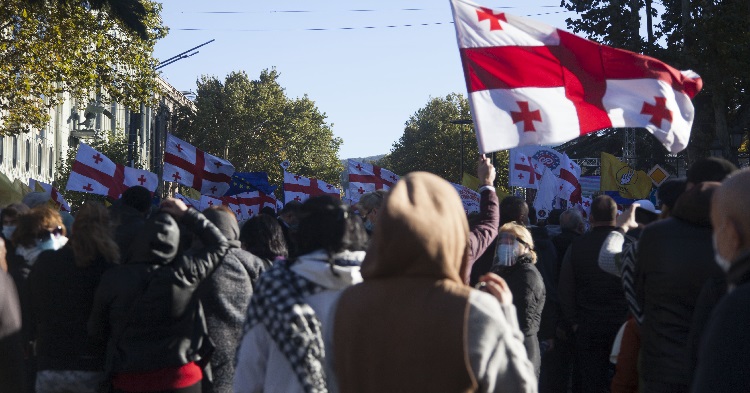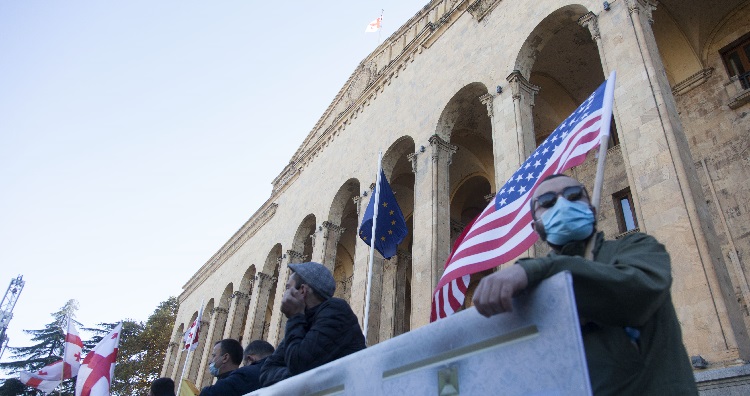Venice Commission calls on Georgia to ‘reconsider’ several election, parliament-related bills

Georgia has requested the Venice Commission to provide its opinion on several bills. Photo: CoE.
The Venice Commission of the Council of Europe has released its opinion on several Georgian bills and has called on the country ‘to reconsider several amendments to the Election Code, the Law on Political Associations of Citizens and the Rules of Procedure of the Parliament of Georgia.’
Most of Georgian opposition parties which won seats in the 10th convocation of the Georgian parliament have refused to take up their mandates - 54 of 60 mandates in the 150-member parliament.
They say that the October 31, 2020 parliamentary elections were fabricated and have been demanding repeat elections since November 2020.
The ruling Georgian Dream party has proposed several changes which may deprive parties of state funding and other benefits if they refuse to enter the state legislature.
- Bill proposes stripping parties of state funding if they refuse to take up parliamentary mandates
- Bill passes in 1st reading stripping parties of state funding if MPs refuse to enter parliament
The Venice Commission believes that the amendments proposed by the ruling Georgian Dream party which deprives political parties of receiving free airtime if they do not receive public funding is ‘disproportionate and unfounded.’
 The opposition parties say that the bills were proposed to blackmail them, make them to give up rallies and take up their mandates. Photo: Nino Alavidze/Agenda.ge.
The opposition parties say that the bills were proposed to blackmail them, make them to give up rallies and take up their mandates. Photo: Nino Alavidze/Agenda.ge.
As it is exactly these parties with less funds at their disposal that would need access to free airtime in order to voice their opinions and present their programmes to the electorate,” said the Venice Commission, adding that ‘such a restriction is not in the public interest, as it would reduce access to information that the public needs in order to make an informed choice in elections.’
The Venice Commission is also concerned by proposed amendments that would deny state funding to a political party or electoral bloc that did not take up at least half of the parliamentary mandates that it won, and would deprive the party or bloc of state funding for the next six months, if half of the members of parliament of any party or bloc did not attend without good reason more than half of the regular plenary sittings.
Sanctioning political parties and not individual MPs by depriving them of funding, if the respective MPs do not attend most sittings during a parliamentary session, appears disproportionate and at odds with the Parliament’s Rules of Procedure, which already regulate such matters in a clear and balanced manner,” said the Venice Commission.
The Venice Commission did not welcome the amendment which allows the removal of a party of election registration if the party is run by a citizen of a foreign state.
 54 of 60 opposition MPs have refused to take up their mandates. Photo: Nino Alavidze/Agenda.ge.
54 of 60 opposition MPs have refused to take up their mandates. Photo: Nino Alavidze/Agenda.ge.
The Venice Commission says that the proposed amendment ‘does not clearly define which criteria would be used to determine who is considered to be an electoral list or party’s political leader.’
Besides, while the right to vote and stand for election may be subject to some conditions, including the respective individual’s nationality, restrictions of aliens to participate in domestic political life should be limited to the establishment of political parties, but not to their membership,” said the Venice Commission.
The Venice Commission said that the sanction of deregistering a party list due to the foreign nationality of a person acting as its political leader ‘seems a disproportionate measure that targets the party rather than the alien in question.’
 Tweet
Tweet  Share
Share